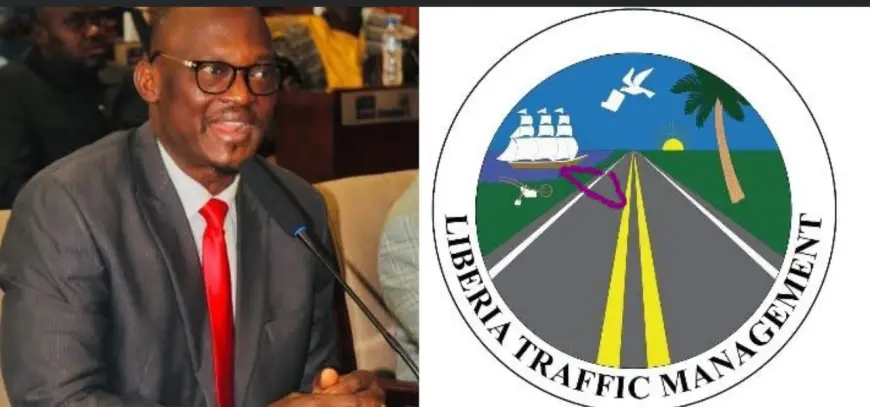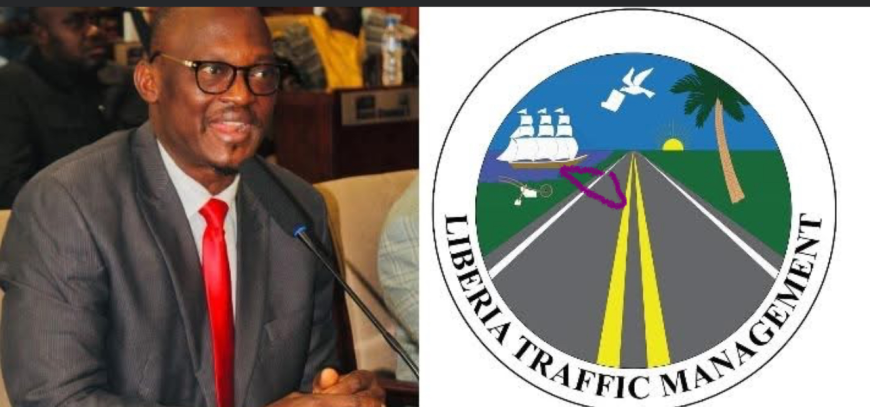Introduction: The Rising Concerns over Liberia Transport Reform
The Liberia transport reform has stirred significant debate across political and public domains. The recent transfer of critical transportation functions, such as driver licensing and vehicle registration, from the Ministry of Transport to Liberia Transit Management (LTM), a private entity, has raised questions about transparency, accountability, and the very future of public governance in Liberia. This reform, while potentially promising modernization, has been mired in confusion and suspicion, highlighting urgent concerns about institutional integrity and democratic processes in the country.
Liberia Transport Reform and the Shift of Authority
Traditionally, the Ministry of Transport held the exclusive mandate for vehicle regulation and driver licensing in Liberia. However, the Liberia transport reform has seen these key responsibilities delegated to LTM without clear public explanation or legal framework. This shift raises the critical question: who is truly in charge of transportation governance? The opacity surrounding this transfer casts doubt on the Ministry’s current role, leading many to believe it has been reduced to a mere policy-making body devoid of practical authority, with LTM operating behind the scenes.
Legal and Governance Implications of the Liberia Transport Reform
The legality of the reform remains unclear. No formal announcements clarify the statutory basis of LTM’s expanded mandate, and it is unknown whether legislative approval was sought. Liberia’s Vehicle and Traffic Law of 1972 still assigns licensing and registration to the Ministry of Justice’s Motor Vehicle Bureau. The involvement of the Liberia National Police in outsourcing these functions adds complexity, potentially blurring lines between enforcement and service delivery. These governance ambiguities could weaken public trust and institutional coherence if not transparently addressed.
Comparative Perspectives: How Other Countries Manage Transport Functions
Looking globally, many countries separate regulatory and enforcement roles for transportation. In the United States, the DMV administers licensing and vehicle registration, while law enforcement handles traffic enforcement. Ghana employs a similar model with the DVLA. The Liberia transport reform deviates from these norms by involving a private company and the police in ways that challenge conventional governance models. This raises questions about capacity, conflicts of interest, and the risks of privatizing essential public services without robust oversight.
The Impact of Liberia Transport Reform on Public Accountability
Public accountability is at the heart of any governance reform. The Liberia transport reform, shrouded in secrecy, risks eroding citizens’ trust in institutions meant to serve them. Without clear public hearings, legislative scrutiny, or transparent contracts, this reform could pave the way for unmonitored private control over critical national functions. Liberia’s citizens deserve answers regarding ownership, legal authority, and safeguards against abuse. Failure to provide such clarity threatens to undermine democratic values and institutional credibility in the transport sector.

For more insights on Liberia’s governance issues and reforms, read our detailed analysis on Latest Liberia Governance Issues.
Challenges Facing the Ministry of Liberia transport reform
The Liberia transport reform exposes deep-rooted challenges within the Ministry of Transport. Years of underfunding, lack of infrastructure, and limited human resources have weakened the Ministry’s capacity to fulfill its mandate. Instead of strengthening institutional capabilities, this reform has shifted core functions to a private entity, potentially creating gaps in oversight and control. Without proper investment in capacity building, the Ministry risks becoming obsolete, relegated to a symbolic role while vital services operate outside government supervision.
Liberia transport reform: Concerns over Transparency and Public Participation
Transparency is a cornerstone of good governance, yet the Liberia transport reform process has been opaque. Key stakeholders, including the public and legislature, have been largely excluded from discussions. This lack of participation fuels distrust and suspicion. Genuine reform requires inclusive dialogue, public consultation, and clear communication to ensure that changes serve the public interest rather than private agendas. The silence surrounding the legal and procedural basis of the reform is particularly alarming.
Potential Risks of Privatizing Public Transportation Functions
Privatization of public services can improve efficiency, but it also carries risks, especially when implemented without accountability frameworks. The Liberia transport reform’s delegation of licensing and registration to LTM may lead to unchecked power concentration, reduced service quality, and increased costs for citizens. Public control ensures transparency, equitable access, and protection of citizens’ rights. It is crucial to establish strict regulatory oversight mechanisms if privatization continues to prevent abuse and ensure service standards.
Liberia transport reform:The Role of Civil Society and Media in Safeguarding Public Interest
Civil society organizations and independent media play a vital role in holding government and private actors accountable. In the context of Liberia transport reform, vigilant watchdogs can expose irregularities, advocate for transparency, and inform citizens about their rights and responsibilities. Encouraging investigative journalism and public debates can increase pressure on decision-makers to uphold democratic principles and ensure that reforms do not compromise public welfare.
The ongoing changes in Liberia’s transportation sector reflect a broader need for reform that addresses not only infrastructure but also institutional governance. The shifting responsibilities between public ministries and private entities, like Liberia Transit Management, highlight the complexities in managing national assets efficiently. While modernization efforts are often welcomed, the lack of clear communication and transparency surrounding these transitions creates uncertainty and undermines public trust. Sustainable reform demands not only better systems but also stronger legal frameworks and accountability to ensure that these services remain accessible and fair for all citizens.
Moreover, the privatization or delegation of core governmental functions, such as driver licensing and vehicle registration, raises significant questions about regulatory oversight and the balance between public interest and private gain. Without proper legislative backing and public consultation, such moves risk creating gaps in governance that could lead to inefficiencies or even corruption. It is imperative that reforms include comprehensive stakeholder engagement and clearly defined roles to preserve the integrity of public institutions while improving service delivery.
Finally, the challenges facing Liberia’s transport sector are emblematic of wider issues in governance and decentralization across the country. Addressing these problems requires a multi-faceted approach that strengthens local capacities and ensures that reforms translate into tangible improvements on the ground. This means not only enhancing operational efficiency but also promoting citizen participation, transparency, and responsiveness. Only by embracing these principles can Liberia hope to build a transport system that supports economic growth, safety, and social equity for all its people.
One of the most pressing concerns in Liberia’s evolving transport environment is the equitable distribution of services between urban and rural communities. While cities like Monrovia may experience modest improvements due to concentrated reform efforts, vast rural regions often remain neglected. These communities rely heavily on public transport to access education, healthcare, and employment. Any effective reform plan must be inclusive, ensuring that national policies consider the unique needs of these underserved populations.
Another critical component of sustainable transport reform is workforce development. With new management systems being introduced and digital tools replacing outdated procedures, the demand for well-trained professionals in logistics, administration, and customer service has never been higher. However, without structured training programs and investment in human capital, the sector may suffer from inefficiency and low morale. Reform should therefore prioritize professional development and capacity-building alongside infrastructure upgrades.
Furthermore, effective communication between stakeholders—including government bodies, private operators, and the general public—is essential to the success of any major reform. A lack of transparency regarding policy changes or operational shifts can lead to public confusion, resistance, or even protest. Clear, timely, and inclusive communication strategies must be embedded within all phases of transport planning and implementation to foster cooperation and maintain accountability throughout the process.
Looking Forward: Recommendations for a Balanced Transport Reform
For Liberia to truly benefit from transport reform, a balanced approach is essential. Strengthening the Ministry of Transport’s capacity, clarifying legal frameworks, and ensuring active legislative oversight are key steps. Any involvement of private entities like LTM must be governed by transparent contracts with clear accountability and performance standards. Engaging citizens and stakeholders through public consultations will help rebuild trust and create reforms that reflect national priorities and democratic values.
Explore more on Liberia’s governance reform and transport sector at Liberia Governance Reform Analysis.
Source: FrontPage Africa
The post Who’s in Charge? The Confusing Role of the Ministry of Transport Amid LTM’s Expanding Mandate appeared first on FrontPageAfrica.




